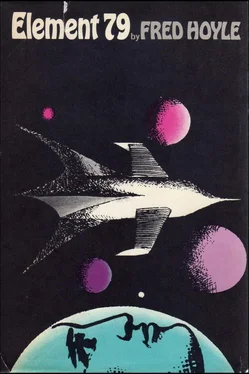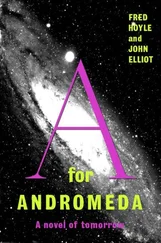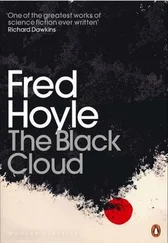The men were actually reduced to making a complaint, through the agency of the jolly communication chaps, when at one time things really had gone a bit far. The Martians replied in the following terms:
(1) A survey of the entertainment enjoyed by the human species throughout the second half of the twentieth century shows that sex served as the major item of human attention, pleasure, and happiness.
(2) The pursuit of happiness is the declared intent of the human species.
(3) Present policy provides for (2).
(4) The subject is closed.
The sheer physical strain of maintaining what turned out to be a stable population of some three million reduced the men to a state in which they no longer had the necessary determination to suppress the robots. A critical point was passed, separating the time when the robots might once again have been consigned to the furnace and to the compactor from the final era in which this was no longer possible. The jousting ball was now ultimate law. The human species was powerless, not only biologically, but also physically. The Martians had won the final battle, and without striking a single physical blow, if one excepts the biochemical analysis of the four unfortunate scientist-explorers sent to them at such enormous expense by NASA. Humans had themselves looked after the physical aspects of the matter, even to the extent of building the robots which now held them in bondage. It only remained for the Martians to have the robots herd the whole human species together into a reasonably spacious compound. Earth could then be cleaned up, cleaned of its horrible green slime, and at last made fit for a Martian to live in.
So it came about that the entire human species came to live in greater Los Angeles, and that true Martians arrived here to take up an abode beneath the polar icecaps. Ample water was pumped in to the humans, who kept their little patch of Earth forever verdant. There were just a few who hankered after the strident old days, but they never got much of a hearing. Life on the whole was very pleasant. Indeed, there came a time when the species attained a considerable cachet. Rather to their own surprise, the Martians found humans a distinctly exportable item. Nobody throughout the Galaxy could at first believe it possible for such astonishing creatures to exist. Nobody had ever conceived of chemical life. As far as was known, the creatures were quite unique.
The spring of 1966 brought startling news to the British bird-watching world. A pair of Baird’s Oreales were nesting in the park of an estate near Bury Saint Edmunds.
Hugh McAlan was an improbable bird-watcher. Seriously shortsighted, he was a convert to the eye-exercise school. Bird-watching had been recommended to him as likely to sharpen his acuity. It did so, but not for the reason McAlan imagined. There was no improvement at all in the optics of the eye. What bird-watching did was to make him more consciously aware of the information that was passing in any case from eye to brain, information which he had previously ignored. It simply directed certain things to his attention, things that had been there anyway.
McAlan applied to the Ornithological Trust for a permit to visit the estate near Bury Saint Edmunds. He wasn’t too hopeful about his application, because it was plainly impossible for the Trust to grant permits to more than a small fraction of the many ornithologists of the Greater London area. Hugh McAlan was one of the lucky ones as it turned out, however. He was given a permit for eleven a.m. Sunday, which was much the best day of the week for him, and pretty well the best time of day, too.
So one morning in late April, McAlan headed his Austin Mini out of London onto the Newmarket–Bury road. By his side were binoculars and a luncheon satchel, in the boot of the car his faithful waders.
The ornithological party, when fully assembled, turned out to be about fifty strong. With so many people, the warden who conducted them through the estate was understandably reluctant to approach the Oreales closely. At all costs, the birds must not be frightened from the park.
Some of the party claimed to have sighted the Oreales in the far distance, but McAlan wasn’t one of them. He saw a white-backed woodpecker, a nuthatch, and a redstart, which partly made up for the Oreales. The session lasted several hours. His feet were quite tired by the time he got back to the Mini.
Hugh McAlan decided to return along the Haverhill road instead of by the faster A11. He started off down quiet country lanes, musing to himself. He wasn’t giving full attention to the driving, but neither was he really careless. He would have noticed any unexpected road traffic, like a car pulling out of a side road, for instance. What he did not notice, until it was too late, was a pair of birds, flying endlessly round and around each other, a pair that came into the road over the bushes on his near side. There was an unpleasant thud as the car hit the wretched creatures. Only after the impact was McAlan fully aware of what had happened. He stopped and looked back over his shoulder. The birds were lying dead in the road, the road itself covered by an incredibly vast carpet of feathers. He climbed slowly out of the car and sadly walked to the point of the tragedy. Some of the feathers were of a greenish tinge. There were black tailfeathers, too. But most were of a brilliant yellow. Hugh McAlan had “got” his Oreales after all.
Arthur Hadley was a hard-driving man, just turned fifty. His only occupations were business and sex. On these topics he lavished his working hours in a ratio of about three to one. His headquarters were in Nottingham, but his activities were by no means confined to the immediate neighborhood. He had a chain of interests spread over the whole of the north of England. He had partners in some of these interests, partners whom he terrified by the risks he ran, like Tony Brown. Sir Anthony Brown was a yellow-bellied twerp, in Hadley’s personal opinion, but his title happened to be useful. The risks were always of the “swallow-all-the-water-in-the-sea” kind. Hadley’s specialty was the take-over bid. Early in life he’d discovered a simple truth, take-overs go most smoothly and profitably if they’re done when times are bad. There was no point in making bids for prosperous firms with long order books, too costly. In the old days, he’d bought when trade was slack. Now things were different, without the old big ups and downs. He bought now when credit was tight, and credit was tight every three or four years, whenever the whole country got itself into another kettle of economic hot water. In the year 1965 he did quite a lot of buying. By the end of 1965 he was pretty replete, overextended, folks called it. For the next year or two it would be necessary to sit down and work away at it all, to chew the cud, to masticate.
Arthur Hadley was good at chewing the cud, because he gave a lot of time and thought to the process. He was good at choosing the right man for a job. He made mistakes sometimes, of course, but once he realized he’d made one, he always put it right quickly. “Cut your losses—fast” was one of his favorite tags. He was thinking now of hoofing out a dull old bugger, who for donkey’s years had run a firm he’d recently bought on the outskirts of Sheffield. Too set in his ways, too stereotyped, too old-fashioned. The only problem was, who to move into the job. Perhaps it would be best to give young Mike Johnson a whirl. It would mean taking him away from the Nottingham factory, which would be a real nuisance just at the moment. But he couldn’t see a better solution. He said so to his twenty-eight-year-old wife, Jennifer, and was surprised when Jenny disagreed. Usually she just listened to his business talk. He used her as a pair of ears, not really because he needed to talk to anybody, for advice or anything like that, but because he was inhibited—like most people—against talking to himself. That was why he was surprised about Mike Johnson. For a brief flash he wondered whether there could be anything between Johnson and his wife. Then he dismissed the thought. Jenny hadn’t much appetite for that sort of game.
Читать дальше












